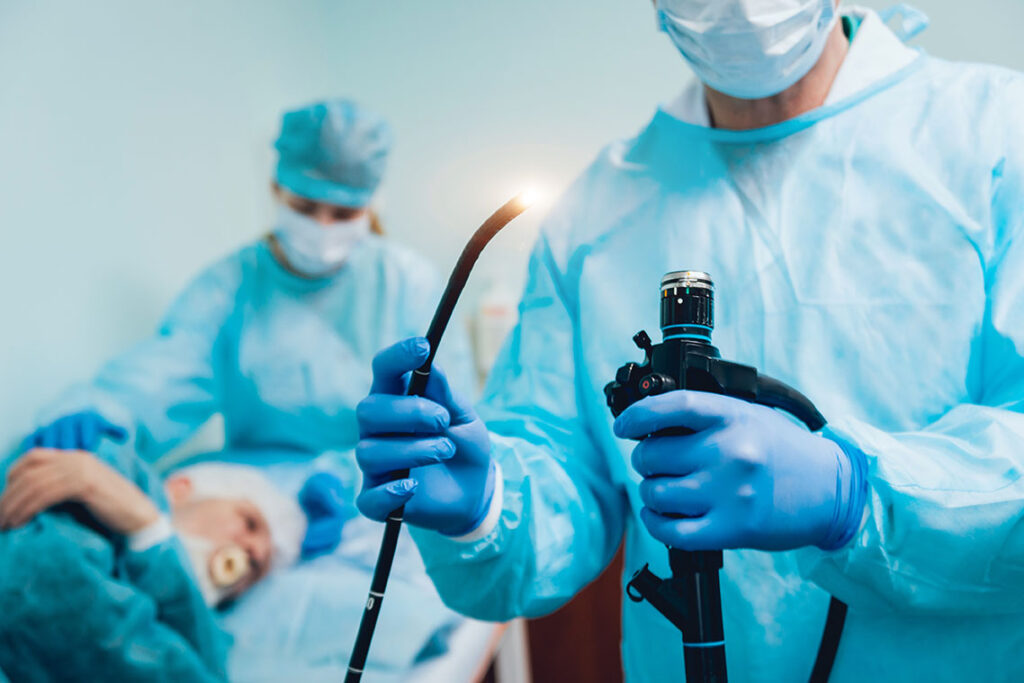- 10 Ramsay Rd Pennant Hills
- (02) 9875 2311
Colonoscopy
What is a colonoscopy?
Colonoscopy is a procedure used to view the large intestine (colon and rectum) using an instrument called a colonoscope, a flexible tube with a small camera and light source attached to its tip. Colonoscopy can be performed for screening or diagnostic purposes.
Colonoscopy is usually performed under sedation on an outpatient basis. You will be given a laxative or enema preparation to clear your bowels before the procedure. Air will be pumped into the colon to expand it for better visibility. The colonoscope is inserted into the rectum and gently moved up the colon until it reaches the caecum (junction of small and large intestine). The colonoscope is then withdrawn slowly to carefully inspect the colon & rectum. Any polyps or growths detected by the colonoscope can be removed if suitable and sent to pathology for determining whether it is cancerous or not.
Screening colonoscopy is a very sensitive test. However, some cancers, small polyps or nonpolypoid lesions may go unnoticed. For more information regarding colonoscopy, including potential risks please click here.


Age 50
Screening is recommended if you are 50 years of age or older, with no risk factors. The test is ordered earlier if you have a family history (first-degree relative: parent, sibling or child) of colorectal cancer or polyps. If the relative was diagnosed at <60 years of age or if two relatives were diagnosed at any age, you are advised to have a screening colonoscopy at 40 years of age or 10 years before the age of the earliest diagnosis (whichever comes first). The screening needs to be repeated every 5 years. If the relative was diagnosed at ≥60 years of age or if two relatives were diagnosed at any age, you are advised to have a screening colonoscopy at 40 years of age, and repeat every 10 years.
